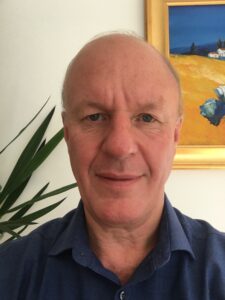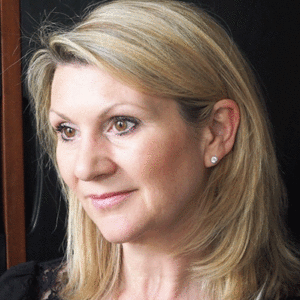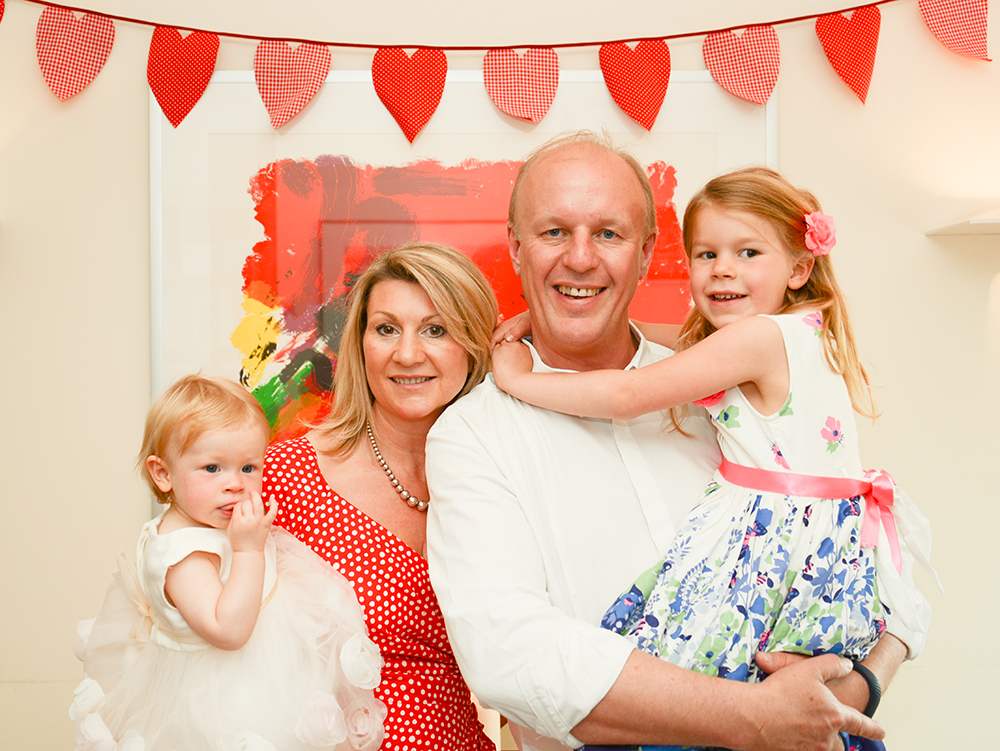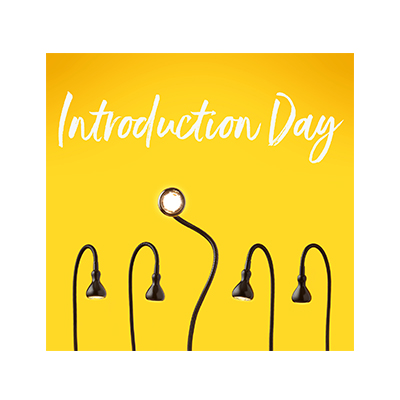What prompted you to do the Process?
Simon: When I did the Process I was in the middle of a marital crisis. I’d never done any therapy and the idea of a therapeutic ‘boot camp’ appealed. I’d also prompted my wife (at that time) to do it before me….and had been impressed, unnerved and inspired by what I’d seen when she returned. I think I’d avoided deep introspection up to that point, but recognised it was time – I was about to be 42 and I actually had my 42nd birthday during the course.
Michelle: I did the Process at 36 after a series of life knocks: losing my job, a financial crisis and a failed relationship. I’d recently embarked on psychotherapy training and had met Simon who recommended it highly (he was a Hoffman facilitator by then!). I wanted to give my relationship and new training the best foundation I could, and I’d heard Hoffman was like a year’s therapy in a week.
Were there any surprises?
Simon: I’d thought I knew myself but discovered that, like an iceberg, I had a fair idea of the part above water, but the nine tenths below were deeply hidden and largely unknown. What lies beneath the surface continues to surprise me to this day.
Michelle: I was surprised by how much we covered. The course structure helped me uncover lost parts of myself and connect to the intuitive, wise part of me who longed to be in the driving seat! At times I felt battered, bruised and exhausted, but the results were profound.
 What was your most valuable takeaway from the course?
What was your most valuable takeaway from the course?
Simon: The Process reintroduced me to the spiritual part of my being which had been important between the ages of 10-20 and which I’d allowed to fade. During one of the Process visualisations I had a powerful experience of the Knight archetype which helped me align with a new life purpose – one centered on championing the afflicted and helping those in need, rather than lining my own pockets and pursuing traditional goals.
I also took away the germ of an idea that I might be suitable to be a therapist and Hoffman Facilitator! Looking back, the insights I gained into the unique predicament we experience as children as we try to gain love and acceptance from our parents has provided a foundation for my work as a therapist to this day.
Michelle: A takeaway that I love is a tool that you learn on the course – a way to check in with four aspects of yourself: the Body, the Intellect, the Emotional Self and the Spiritual Self – this is invaluable to use when I’m out of balance or where my clients need extra support.
Is there anything you wish you’d done differently?
Simon: I sometimes wish I’d done it earlier. I might have avoided the more obvious pitfalls in life. I also think I’d have been a better and more conscious parent when my children were younger and at a more formative age.
Michelle: I wish I’d taken the weekend after the course on my own to integrate my experience without the outside world coming in too soon. I also wish I’d had some coaching or therapy afterwards to anchor my experiences.
Has your relationship with your partner changed since the Process?
Simon: I split up with my first wife in 2006, about three years after doing the Process. The shared experience of Hoffman gave us certain common understandings which allowed us to manage our separation with more wisdom, flexibility and care than we might have otherwise have done. We remain friendly, and as I write this during the pandemic lock-down, my first wife and three children from that marriage have a weekly online meet-up.
My relationship with Michelle was definitely enriched by our both doing the Process. Through our ongoing involvement with the facilitators and those clients who come to see us before and after doing the Process we continue to be directly involved.
Michelle: I did the Process in 2008 soon after meeting Simon and it was great to be able to share a common language. Hoffman has been valuable for seeing when we’re both in childhood patterns and how to navigate this better. I feel lucky we both have the Hoffman community in our lives.
 Did you notice a change in your parenting when you came back from the course?
Did you notice a change in your parenting when you came back from the course?
Simon: I remember that my inner relationship with my children had changed. Hoffman attuned me to my own childhood and the results of my survival strategies and the patterns I’d taken on from my parents. With that clear in my mind I tried and, I think, succeeded in being a better and more conscious parent.
Since then I’ve had two further children with my second wife Michelle. I continue to be mindful of the unconscious impact I can have on my children. We have regular family meetings where we can discuss what we’re happy with or not, and how they experience parenting. The things that irritate me most about my children are often patterns that are entrenched in me. The apple doesn’t fall far from the tree!
How did you feel, Michelle, when your brothers David and James were on the Process?
I was excited and nervous when both my brothers did the Process. David did it first and I loved seeing his face when we met up. He had a lightness and calmness that was such a joy to see. James did it more recently, as did his wife Tessa. They both had fantastic facilitators and gained a depth of understanding and forgiveness that was beautiful to witness. I’ve loved hearing their insights and favourite bits!
How did you feel, Simon, when your wives did the Process?
Nervous both times! For the same reason…”will they still love me when they get back?” And even though the second time I’d been facilitating the Process for a number of years and knew exactly what Michelle would be doing every minute of the day still the child inside me had some wobbly moments…
Do you refer clients to the Process – and if so, how do you find that fits with their goals?
Simon: Yes, I often refer clients to the Process when I feel they’re ready. It’s invariably an important stage in development and they often find, as I did, that their original goals undergo refinement and change.
Michelle: I enjoy preparing clients to go on the Process as well as helping them to integrate and digest their experience afterwards. It’s wonderful to see such a shift in their psychological awareness and how committed they are to their growth.
How do you feel the Process differs from therapy?
Simon: Although the Process is based on well established therapeutic principals, it differs from therapy in a number of ways. The course concentrates so much therapeutic activity in such a short space of time that it allows for a great intensity and speed of transformation. On the other hand it maybe does not allow for the slow unfolding of major life themes which often emerge during the course of therapy.
Much healing comes from the relationship and rapport between the therapist and the client, whereas the Process teaches more self-reliance. We’re all different, yet, for some, ongoing therapeutic work can play an important role in really embedding the learnings and allowing them to flourish.
Michelle: The Process was an intense week-long dive into family patterns that weren’t serving me anymore. Therapy has been a slower process and more gentle at dealing with underlying trauma.
Do you see therapy and the issues people bring to it is evolving in any way?
Simon: Consulting a therapist is much more common now than 20 years ago – a lot of stigma has disappeared. There’s also a new generation for whom therapy has been normalised, by seeing both their parents and celebrities engaging in it. The eternal questions haven’t changed that much: “who am I and what am I doing here”….but a younger generation seem to be asking them sooner and pre-empting the ‘mid-life crisis’.
Michelle: In terms of what clients bring to me I see more overwhelm and anxiety, especially if there’s underlying trauma and early life issues. Many also want their relationship to be more fulfilling and to find more meaning in their life. A key area is needing support with life challenges and transitions, which often bring up grief and fear of the unknown.
New motherhood is a threshold I love working with because we are rarely prepared for the intensity of this time and it’s such a gift to be able to relax into it more!
I enjoy helping my clients to build their resilience and practice self-care so they’re able to get more out of life.
Five Top Tips:
• The Process starts as soon as you make the commitment to do it. Fear, excitement and change are all part of it.
• It’s helpful to take an extra weekend after the Process to give yourself space to integrate the insights and gifts and look after yourself.
• Keep connected to the Hoffman community. Post Process weekend workshops, Hoffman coaching or therapy are all great ways to support your journey of change and integration.
• Your loved ones may be unsettled when you return. Be as open as you can so they feel included – without spoiling the Process in case they do it!
• Remember to look after your heart and protect those parts of yourself that are just beginning to emerge.
For more about Michelle’s work, visit: michellematthews.co.uk
For more about Simon’s work, visit: simonmatthewstherapist.co.uk







 Sign up to receive monthly newsletters from Hoffman
Sign up to receive monthly newsletters from Hoffman